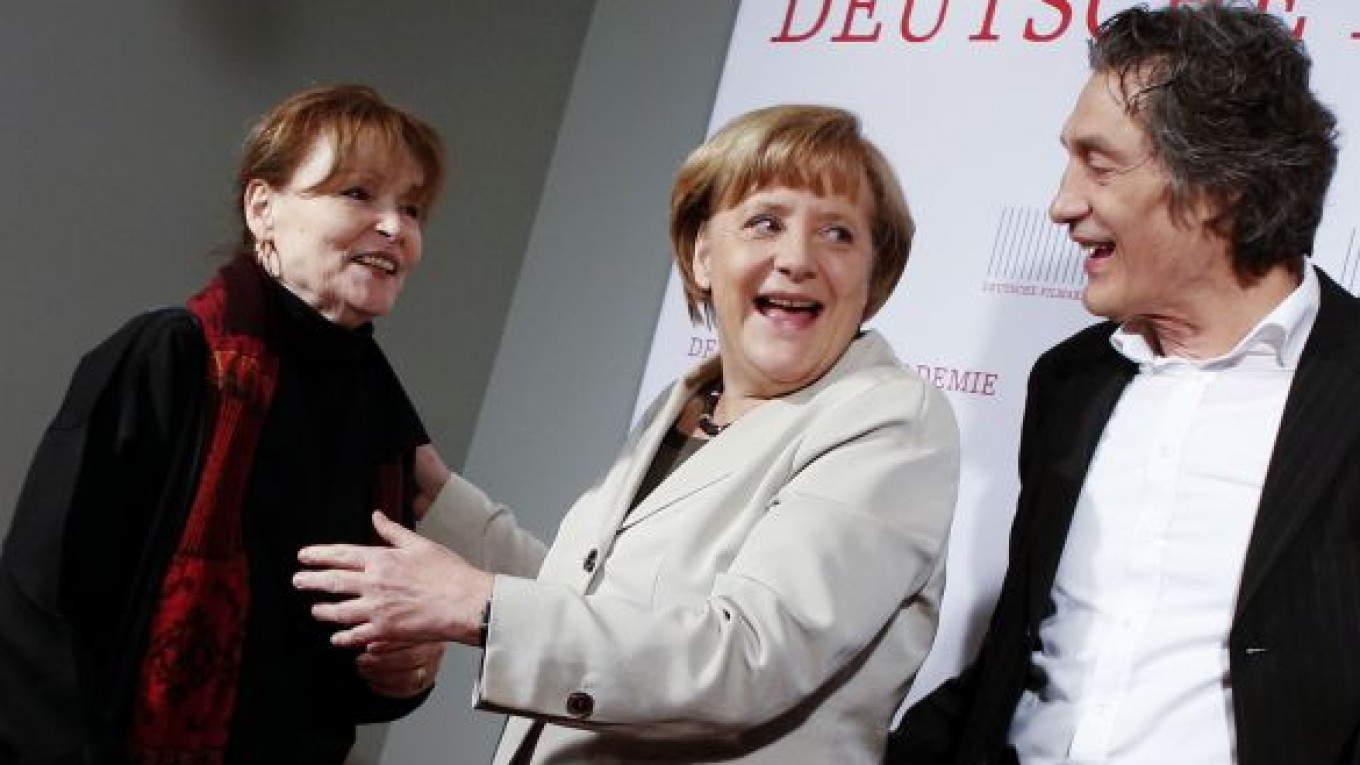BERLIN — German Chancellor Angela Merkel has dismissed claims in a new book that she was more actively committed to East Germany's communist regime than she has acknowledged, saying she has never kept anything secret about her past.
The book, "The first life of Angela M.", says that Merkel, who will seek a third term as chancellor in a federal election in September, was responsible for Marxist-Leninist education in a unit of the state's youth wing, in a role that went beyond the cultural duties she has previously spoken of.
Asked about the claims late Sunday after a screening of her favorite film, a 1973 East German love story, Merkel said she had always spoken openly and to the best of her memory.
"I can only fall back on my memories. You just have to accept this … if something else turns up, then I can live with it," said the 58-year-old chancellor. "What is important to me is that I never kept anything secret."
A new book says the German leader had an “agitprop” role in the East German state youth movement.
The book's claims are unlikely to affect Merkel's chances of re-election but they highlight how enigmatic she remains for many Germans after nearly eight years in power.
German media have had a field day printing pictures of Merkel, who is extremely protective of her private sphere, as a willowy 20-something on Baltic beach holidays, tending a camp fire or drinking with student friends, as commentators try to fathom her early political persuasions.
Merkel joked that there may be other aspects of her earlier life to be unearthed: "It is always the case that when something emerges, which of course from the perspective of the former West Germany looks very different, then people say 'she hasn't told us this yet' and 'she hasn't told us that yet'."
"I don't know — maybe there are other things I didn't talk about because no one ever asked me."
Merkel was 35 when the Berlin Wall fell in 1989 and was working as a scientist at an academic institute. She has described her early life as non-political, in contrast to German President Joachim Gauck, a former East German pastor who vigorously opposed the regime.
While at the science research institute Merkel said she was a cultural official for the Free German Youth (FDJ), the movement nearly all East German youngsters joined as teenagers.
Commenting on her role in a 2004 book, Merkel said she took it to get out more often, particularly as her then-husband mostly wanted to stay at home. It entailed organizing outings, readings by young Soviet writers and getting theater tickets.
The new book repeats previous claims that the role was as an "Agitation and Propaganda (agitprop) functionary" and was at a higher hierarchical level than Merkel had previously stated.
Asked in 2004 about an "agitprop" role, Merkel said: "I cannot remember agitating in any way whatsoever. I was responsible for culture."
In its heyday, the FDJ, whose members wore blue shirts and pledged to be "ready for peace and socialism," had more than 2 million members. East Germany's long-time leader Erich Honecker was a former leader of the FDJ, as was his successor Egon Krenz.
A Message from The Moscow Times:
Dear readers,
We are facing unprecedented challenges. Russia's Prosecutor General's Office has designated The Moscow Times as an "undesirable" organization, criminalizing our work and putting our staff at risk of prosecution. This follows our earlier unjust labeling as a "foreign agent."
These actions are direct attempts to silence independent journalism in Russia. The authorities claim our work "discredits the decisions of the Russian leadership." We see things differently: we strive to provide accurate, unbiased reporting on Russia.
We, the journalists of The Moscow Times, refuse to be silenced. But to continue our work, we need your help.
Your support, no matter how small, makes a world of difference. If you can, please support us monthly starting from just $2. It's quick to set up, and every contribution makes a significant impact.
By supporting The Moscow Times, you're defending open, independent journalism in the face of repression. Thank you for standing with us.
Remind me later.






